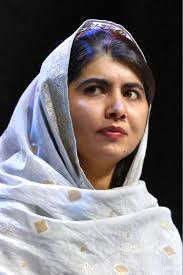
Introduction
Malala Yousafzai, a name synonymous with courage and the fight for education, has become a beacon of hope and inspiration for millions worldwide. Her journey from a young girl in Pakistan advocating for girls’ education to becoming the youngest recipient of the Nobel Peace Prize in 2014 is a testament to her resilience and dedication. As the global discourse around educational rights and gender equality intensifies, her voice continues to play a pivotal role in advocating for those who cannot advocate for themselves.
Background and Achievements
Born in Mingora, Pakistan, in 1997, Malala’s passion for education surfaced at a young age. At just 11 years old, she began writing a blog for the BBC Urdu Service under a pseudonym, which documented her life in the Taliban-occupied Swat Valley and her desire for girls to receive an education. In October 2012, Malala was targeted and shot for her activism, surviving an assassination attempt. Rather than silencing her, this attack catapulted her into the global spotlight.
Since then, Malala has established the Malala Fund, an organization that advocates for girls’ education around the world. Her tireless efforts have led to significant policy changes and funding for educational initiatives, helping millions of girls gain access to schooling in various developing countries. In 2022, she graduated from the University of Oxford, further reinforcing her message that education is a powerful tool for change.
Current Initiatives and Impact
Malala continues to advocate for education, focusing on areas affected by conflict and poverty. Her recent initiatives include partnerships with global organizations to provide educational resources to girls in Afghanistan, where their rights to education have been severely restricted following the return of the Taliban to power. Malala’s unparalleled advocacy has kept the conversation about girls’ education alive and urgent, particularly in regions where these rights are under threat.
In recent months, Malala has expressed concerns about the impact of climate change on education and women’s rights, advocating for increased visibility and action surrounding this critical issue. She underscores the idea that climate justice is also a form of social justice – one that demands our immediate attention.
Conclusion
Malala Yousafzai’s journey is not just her own; it is a collective narrative of courage, resilience, and the unyielding desire for a better future. As we reflect on her remarkable achievements and ongoing advocacy, it is evident that her work is more important than ever. The fight for education, particularly for girls in underrepresented communities, continues to evolve, and Malala stands at the forefront. Her endeavors remind us that every voice counts and that together, we can change the world for the better. Looking forward, Malala’s influence is poised to shape policies and inspire future generations in the ongoing journey toward educational justice.



